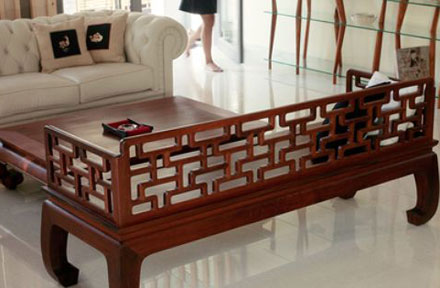
The European Union wants to ensure its Ikea cabinets and Conforama desks are made from legal timber, and it’s turning to the source, or at least one of them: Vietnam. A pending deal with the EU requires Vietnam to tighten laws and enforcement against illegal logging, mostly from over the border with Cambodia but previously from Laos. Source: Bloomberg Environment
Vietnam imports wood from more than 100 countries for processing, but its second-biggest source of tropical timber is Cambodia, which has a rampant problem of loggers cutting in protected forests and threatening environmentalists.
The EU Parliament in February endorsed the Vietnam-EU Voluntary Partnership Agreement on forest trade. The Vietnamese government now must implement the deal before it can join an EU timber licensing program.
Europe is the fourth biggest buyer of furniture and other wood products from Vietnam, which is the world’s sixth largest processor of exported timber.
The World Wide Fund For Nature, known as WWF, expects Hanoi to enact the agreement by 2021. In its resolution endorsing the deal, the EU said Vietnam must adopt rules and processes to screen imports for trafficked logs, as well as crack down on corrupt customs officers who allow trafficking.
“Vietnam has, for the time being, not considered the inclusion of a full prohibition for illegal timber to enter the Vietnamese market, which would entail an obligation to seize such illegal timber,” the resolution said. “The option of stopping imports from Cambodia altogether should also be considered.”
Hanoi has an incentive to go through with the voluntary deal because it fulfills some environmental commitments in the EU-Vietnam Free Trade Agreement, which is now awaiting ratification in the EU.
To Xuan Phuc, policy analyst at environmental group Forest Trends, said this agreement could do more than protect trees.
“The legality framework governing all activities along supply chains is more inclusive, covering requirements not only on the legality of the timber as raw material input but also those on labor safety, work conditions, and environment protection,” he told Bloomberg Environment.
But EU lawmakers also warned about how the voluntary agreement might backfire if it’s adopted just to make timber look clean, without allocating money for enforcement and setting benchmarks to measure progress.
“Enforcement is key to ensuring VPA is not used to ‘launder’ illegal timber,” the EU resolution said.
When Brussels and Hanoi signed the deal in October, “it was apparent that the images and brand names of the Vietnamese timber industries could be improved,” Nguyen Thi Phuong Ngan, a communications officer at WWF, told Bloomberg Environment.
The group said this deal is notable because it will get Vietnam to classify incoming timber and then take further steps to verify it comes from legitimate sources, depending on the type and origin of the logs. Further steps would include physical inspections and requests for documents from importers, such as harvesting permits.
Such documentation will be more expensive for small businesses than large ones.
Some might not consider the cost worthwhile if they use the wood to make products for export to countries less concerned about logging, like China or India.
Ironically, despite the voluntary agreement’s provision that Vietnam sack corrupt customs officers, Phuc fears it “may trigger collusion and corruption if these companies want to bypass those [documentation] requirements.”
He also said Vietnam will struggle with the expense and effort to formalize the timber trade’s grey sector, as the EU deal requires, including the Southeast Asian country’s 340 wood villages, which specialize in making furniture and other wood products.
“At present, they are still largely ignored, mainly because they are informal,” Phuc said of the villages, “And their contribution, though huge, to the economy is not recognized.”





